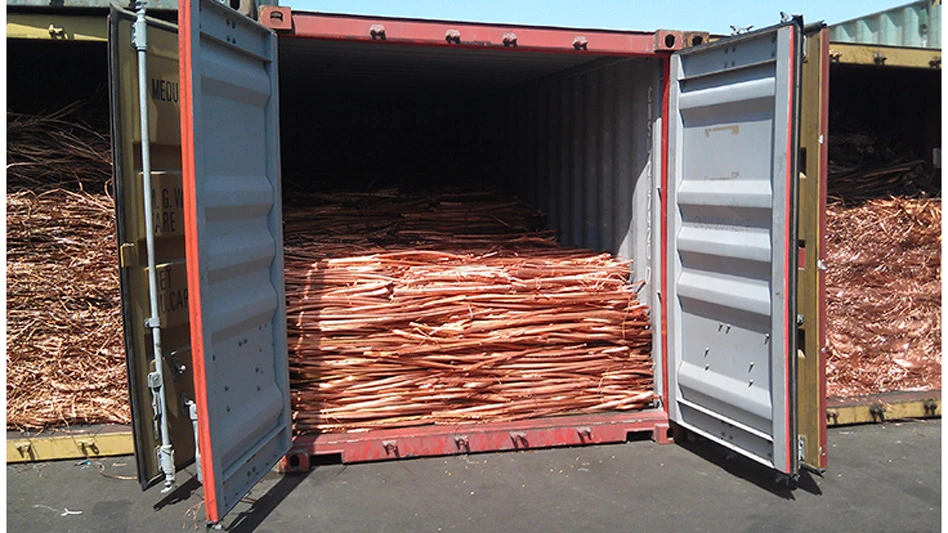|
|
Nations around the world have increasingly taken steps to construct barriers to export ores, minerals and scrap resources for reasons that have been dubbed “resource nationalism.” As portrayed by Sola Adebiyi of London-based CRU at that research firm’s recent 2014 World Aluminum event in Hong Kong, nations erecting these barriers may have more than one reason to do so. In some cases, such as Indonesia’s restrictions on bauxite ore exports, that nation’s leaders want to see multinational firms make greater investments in value-added processing within their own borders. In other cases—and in many scrap export scenarios this holds true—government leaders are protecting metals producers in their own country from having to compete for raw materials in the open, global market. As Adebiyi and others from CRU noted at this same conference, it is not always clear that the nations attempting this gambit ultimately receive the payoff they expected. In most of these instances, however, there is short-term pain for those who previously had made their living exporting these primary or secondary raw materials. Whether this strategy pays off in the long term is often a topic for debate among those who have a strong opinion on what constitutes free and fair trade and what constitutes a government looking out for the interests of its people by preventing exploitation. Nations have every right to protect themselves from the exploitation of their resources. At the same time, manufacturers of automobiles, appliances and consumer goods rush to address new hot spots and emerging markets and, when doing so, may need to reconfigure entire supply chains along with them. All too often in cases of resource nationalism, protectionist measures that are not well thought out can stunt an economic opportunity and cause investments to be directed elsewhere. Recyclers are fortunate to have organizations like the Institute of Scrap Recycling Industries Inc. (ISRI) and the Bureau of International Recycling (BIR) that encourage free and fair trade. Still, in many nations recyclers do not enjoy access to the highest-level policymakers to clarify their positions. Too often recyclers and traders are put into a position to react to a resource nationalism policy that has been proposed or (worse yet) quickly put in place by those in authority. Ideally these occurrences are diminishing, but they seem unlikely to disappear. |

Explore the July 2014 Issue
Check out more from this issue and find your next story to read.
Latest from Recycling Today
- APR, RecyClass release partnership progress report
- Clearpoint Recycling, Enviroo sign PET supply contract
- Invista expanding ISCC Plus certification program
- Redwood partnership targets recycling of medium-format batteries
- Enfinite forms Hazardous & Specialty Waste Management Council
- Combined DRS, EPR legislation introduced in Rhode Island
- Eureka Recycling starts up newly upgraded MRF
- Reconomy Close the Gap campaign highlights need for circularity






